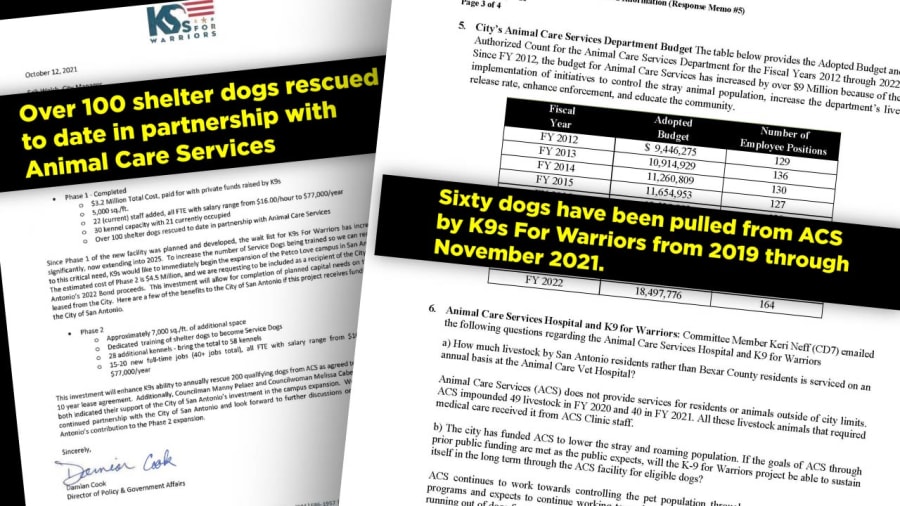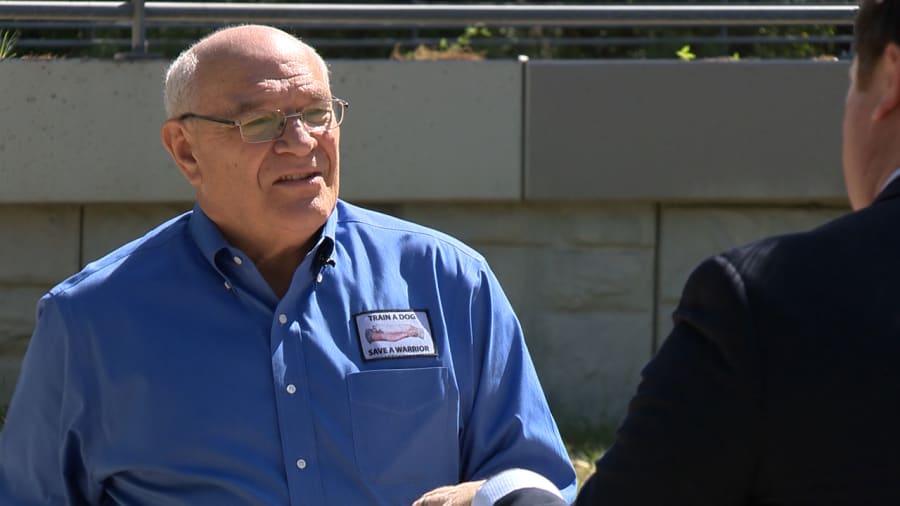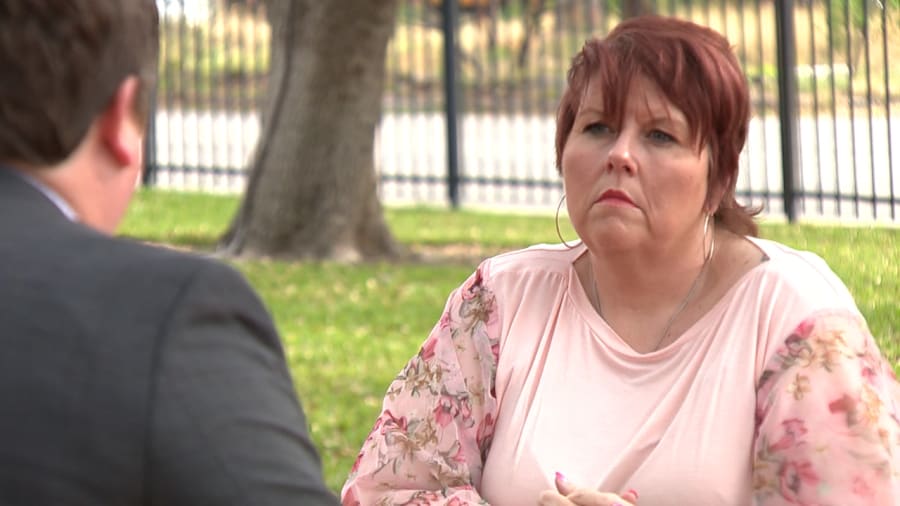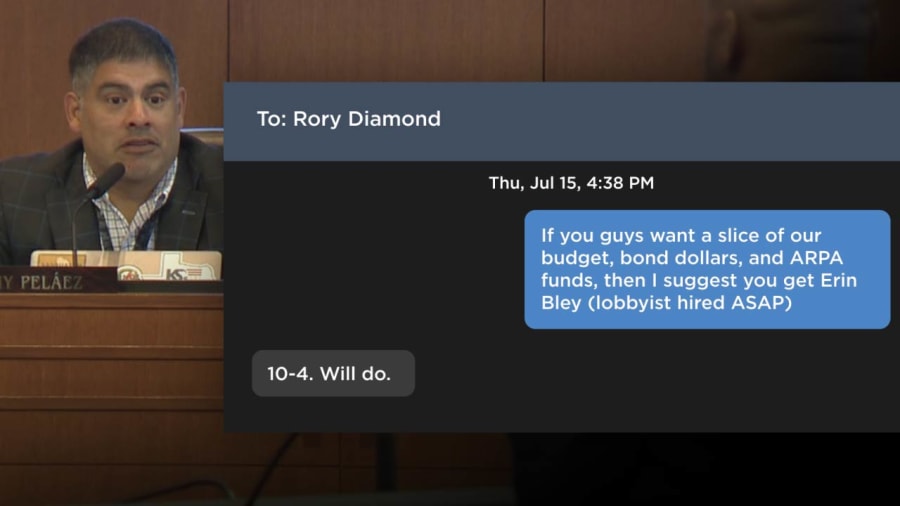SAN ANTONIO – The proposed expansion of a veteran service dog program in San Antonio has been criticized as voters decide whether to give it more than $2 million in city bond money.
K9s For Warriors, a Florida-based nonprofit that calls itself the nation’s largest provider of service dogs for veterans, is hoping to build a second facility on a property along State Highway 151 that it has leased from the city since early 2019.
The 10-year lease between the city and K9s For Warriors calls for the charity to make good-faith efforts to pull a minimum of 200 dogs from Animal Care Services (ACS) a year.
District 8 Councilman Manny Pelaez, who spearheaded efforts to bring the group to San Antonio and now expand it, told the Defenders in a recent interview that K9s for Warriors “is hitting the marks and will likely continue to hit marks and exceed expectations.”
However, critics of the proposed expansion and data obtained by the KSAT 12 Defenders have cast doubt on whether the program has truly exceeded expectations in San Antonio.
A total of 71 dogs were transferred from ACS to K9s For Warriors from 2019 to the end of 2021, well under the agreed-upon 200 per year, according to data obtained from the nonprofit.
Out of that 71, only 19 dogs were deemed suitable for the program, the data shows. The remaining 52 dogs were adopted out to families after it was determined the animals were not fit to be service dogs, according to the charity.
Contradicting statistics
In a signed memo to San Antonio City Manager Erik Walsh in October, K9s For Warriors’ director of policy and government affairs claimed over 100 dogs had been rescued to date in partnership with Animal Care Services.
Less than two months later, in a December memo sent to the facilities bond committee members, Deputy City Manager Maria Villagomez stated that 60 dogs had been pulled from ACS by K9s For Warriors from 2019 through November 2021.
Pressed on why his organization provided an inflated figure last year later contradicted by city staff, K9s For Warriors CEO Rory Diamond said it was “certainly nothing intentional.”
“I think what happens is you’ve got dogs that we take and we look at and they don’t work and we take them back. And so I think that’s where the issue was, the discrepancy,” said Diamond.
However, Villagomez’s memo states that K9s For Warriors does not return animals to ACS and instead finds alternative placements for them.

A city spokeswoman this month said 17 other agencies, including Bexar County Animal Facility, San Antonio Pets Alive and San Antonio Humane Society, are also able to provide rescue dogs to K9s For Warriors.
These “other sources” accounted for an additional 44 dogs being transferred to K9s For Warriors from 2019 through the end of last year. Of those, 15 dogs were deemed suitable for the program, data shows.
Reasons behind deficit
In separate interviews, Diamond and Pelaez gave different reasons for why the nonprofit has not ramped up to transferring 200 or more rescue dogs a year from ACS.
During a February 10 city council meeting, in which councilmembers unanimously approved the bond language for the May 7 election, Pelaez said of K9s For Warriors: “We found an innovative way to pull hundreds of dogs from the possibility of euthanization and put them in the hands of veterans all over the country for the purpose of preventing their suicides.”
Asked by the Defenders why he used the figure “hundreds of dogs” during the council meeting and claimed that the nonprofit was exceeding expectations earlier during his interview with KSAT, Pelaez said the world changed “post-COVID” and that K9s For Warriors was like “every single nonprofit all over the nation” that struggled through budget, staffing and service delivery problems during the pandemic.
“Despite that blip, I think that they did a stellar job,” said Pelaez.
Diamond blamed the low dog transfer numbers on the nonprofit not having a completed brick and mortar facility in San Antonio until last fall, and said he is confident that the 200 dogs a year figure can be obtained if the program is provided bond funding to expand its San Antonio footprint.
“It’ll become very achievable and we look forward to doing it,” said Diamond, who added that K9s For Warriors now employs 28 people in San Antonio.
Pelaez, during his April 15 interview, said that “zero veterans” were being pulled out of suicidal ideation by these types of service dog programs before K9s For Warriors’ arrival in San Antonio.
After the Defenders challenged the veracity of his comment, Pelaez offered a different response.
“Yeah, well, let me put it this way: There are zero programs that offer not just the scale, there are zero programs that offer the continuity of service like this one,” said Pelaez, who described K9s For Warriors as a “vertically integrated organization” that does much more than hand a service dog over to a veteran in need of one.
Nationwide, the Florida-based nonprofit has rescued more than 1,500 dogs and paired over 700 veterans with trained service dogs, according to the agency’s figures.
The bond-funded project
The property, consisting of more than three acres of land, is situated adjacent to Animal Care Services, a key partner in the transfer of rescue dogs into the program. The first building on the property, the 5,000-square-foot Petco Love K9 Center, opened last fall and features 30 dog kennels.
The proposed $4.5 million expansion would use $2.25 million set aside in the 2022 facilities bond, which would then be matched by the charity using grants and private funds, and would more than double the number of kennels on property.
Fifteen to 20 additional full-time positions would also be added as a result of the expansion, bond presentation records show.
Early voting on the record-high $1.2 billion city bond program and its 183 projects started Monday and runs through May 3. Election day is Saturday, May 7.
The city would borrow the $1.2 billion over five years and pay it back using a portion of its property tax revenues. The bond will not require an increase to the city property tax rate, officials have previously said.
The possible expansion of K9s For Warriors is included in Measure E of the bond, covering six public safety facility projects totaling over $78 million.
That measure includes the construction of a new police substation and the replacement of two fire stations. The ballot language does not specifically name K9s For Warriors.
‘What is the benefit to San Antonio?’
Bart Sherwood, founder and executive director for the San Antonio nonprofit Save a Dog Train a Warrior, takes issues with several aspects of K9s For Warriors, including its shipping of dogs rescued in San Antonio to other destinations.
“I think when you start the retailing of service dogs to other areas, rather than where they’re supposed to be, especially if you’ve got a bond that’s building the facility for the training of that dog, what is the benefit to San Antonio,” said Sherwood during an interview with the Defenders.

Since its formation in 2010, Sherwood’s program has graduated more than 1,300 veteran-service dog teams, including 218 made up of San Antonio veterans paired with San Antonio dogs, many of whom were rescued from local shelters or foster homes.
Since 2019, K9s For Warriors has graduated or accepted into the program only 10 San Antonio veterans, according to figures provided to the Defenders earlier this month.
Proponents of the nonprofit, however, are quick to point out that only three vets from here were part of the program before it had a physical presence in San Antonio.
A September press release for the Petco Love K9 Center states that the facility “will house larger-sized rescue dogs that will receive initial veterinary care along with preliminary training until they are ready to be transported to K9s For Warriors’ headquarters in Northeast Florida to begin formal Service Dog training.”
Diamond, however, said during an interview last week that the charity is transitioning to having its San Antonio rescue dogs trained here and that the organization recently purchased a ranch in Helotes to help facilitate that move.
“So, San Antonio was supposed to be kind of like a dog depot where we rescued a dog, held it for a minute and then took it over to Florida. Instead of just a little dog depot, we’ve got a full operation,” said Diamond.
The organization last week graduated several veteran-service dog teams, touting the San Antonio event as the “first ever Texas Warrior class” to graduate using Texas trained and rescued service dogs.
The three veterans listed in the press release for the event all reside well outside the Greater San Antonio area.
“Most reasonable people aren’t going to say ‘well so long as it’s a San Antonio veteran, right?’ Don’t send them to Seguin and whatever you do, don’t send them to Oklahoma.’ I think that’s a monstrous position to take,” said Pelaez, who added that voter approval of the expansion project would make it easier for all veterans, including San Antonians, to be paired with dogs.

San Antonio resident Shannon St. Cyr, like Sherwood, did not hold back in her criticism of K9s For Warriors.
“I think that if they were trying to produce it, they could produce it. I just don’t think that’s their goal. I think it’s a money grab,” said St. Cyr.
St. Cyr, who first began researching the nonprofit while advocating for public safety facility improvements for San Antonio first responders, claims the charity is embellishing its accomplishments here.
“They bundle it all together so that people feel obligated to vote for it, because if they say ‘no,’ then they’re saying ‘no’ to these other projects,” said St. Cyr, referring to the possible expansion of K9s For Warriors being grouped in the same section of the bond as police and fire facilities.
Records show cozy relationship between Pelaez and Diamond
Pelaez told KSAT he met Diamond, who has since become a city councilman in Jacksonville, Florida, while both were part of the 2017 Presidential Leadership Scholars program.
“He was telling me, you know, one of the biggest problems that his organization has is a deficit of dogs that are healthy, that are big-skeleton dogs that don’t have hip problems,” said Pelaez, who added that San Antonio has traditionally had a large quantity of mixed-breed, large girth dogs available for rescue.
Pelaez said he took the idea of bringing K9s For Warriors to San Antonio to his fellow councilmembers and that city officials soon gravitated toward leasing the group the parcel of land near ACS.
Email and text message records between Pelaez and Diamond show a cozy relationship in which the San Antonio councilman served as a consistent driving force behind bringing the service dog program to Bexar County.
In March 2018, Pelaez informed Diamond that he garnered support for the project from his “compadres on city council.” The following month Pelaez emailed Diamond an itinerary for an upcoming visit to San Antonio.
In April 2019, Pelaez introduced Diamond via email to local attorney Blakely Fernandez.
“She is very capable and has a lot of experience dealing with the issues your organization will be facing as you focus on Texas. You are in good hands with Blakely,” wrote Pelaez.
Diamond confirmed last week Fernandez was later brought on board and has helped his nonprofit with land use issues.
Last July, Diamond asked Pelaez via email the best way to leverage a relationship with Rick Cavender, a local automobile dealership executive and prominent philanthropist.
Diamond defended the language used in the email, saying he was attempting to find ways to further network in San Antonio.
“All we’re looking for is an open door so we can tell them about our mission,” said Diamond.
Last summer Pelaez texted Diamond and suggested that he hire local lobbyist Erin Bley “ASAP.” City records show Bley registered with the city of San Antonio to represent K9s For Warriors as a lobbyist 11 days after that text message.

Additional text message records show Diamond asking Pelaez for construction contacts and the pair sharing notes on an executive recruiter.
“Whenever organizations ask me for referrals to competent professionals, I always oblige,” said Pelaez, chair of the city’s Economic and Workforce Development Committee.
Read more investigations from the Defenders:





